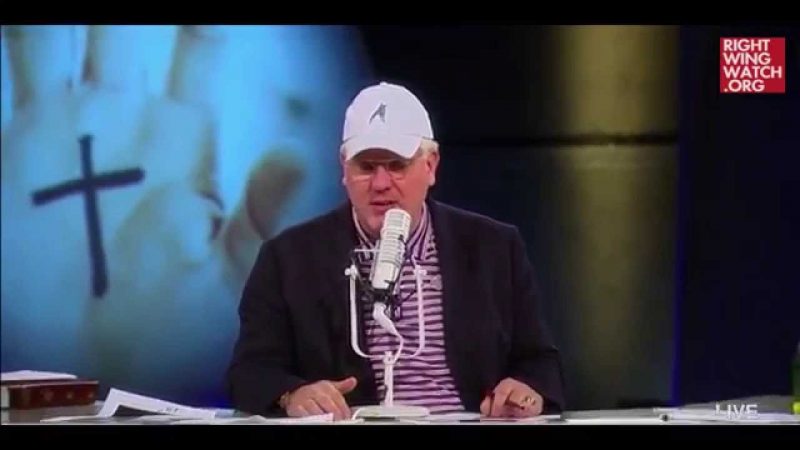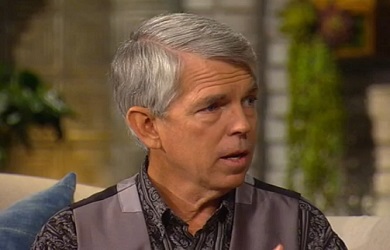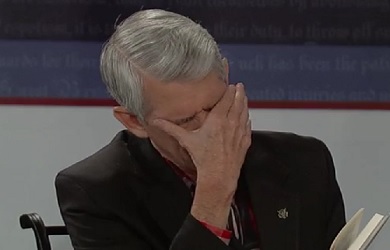It is no exaggeration to say that we have watched or listened to several dozen of the pseudo-historical presentations that David Barton delivers to church groups and political gatherings alike. And we continue to watch them because Barton is constantly adding new unverifiable and downright false claims to his speeches.
But it turns out that even some of the claims that have long served as the foundation for his presentations are also problematic. Over the last week, we have watched two recent presentations that Barton delivered in which made a point that, while today we may only know a bit about a handful of our nation’s Founding Fathers, the Founding Fathers themselves regularly pointed to preachers as having played an extremely important role in the founding of this nation.
And to “prove” this, Barton routinely cites a letter that John Adams wrote to a man named Hezekiah Niles in 1818 responding to a question from Niles about which people were most responsible for the ideas and principles upon which the nation was founded. In Barton’s telling, Adams’ reply was that it was preachers like Samuel Cooper, Jonathan Mayhew, George Whitefield, and Charles Chauncy who must be placed at the top of any such list:
Of course, if you actually bother to take a look at the letter Barton cites, here is what you find:
This produced, in 1760 and 1761, an awakening and a revival of American principles and feelings, with an enthusiasm which went on increasing till in 1775 it burst out in open violence, hostility, and fury.
The characters the most conspicuous, the most ardent and influential in this revival, from 1760 to 1766, were first and foremost, before all and above all, James Otis; next to him was Oxenbridge Thatcher; next to him Samuel Adams; next to him John Hancock; then Dr. Mayhew; then Dr. Cooper and his brother.
That’s it. So not only are the individuals Barton’s cites not listed “right up front,” but two of the people (Whitefield and Chauncy) are not even mentioned in Adams’ list, or anywhere in the letter, at all!
We have heard Barton make this claim regarding this Adams letter several dozen time only to discover today that, like so much else that he says, it is fundamentally untrue; thereby proving once again that just about every factual assertion Barton makes needs to be checked simply because so many of them turn out to be undeniably false.








